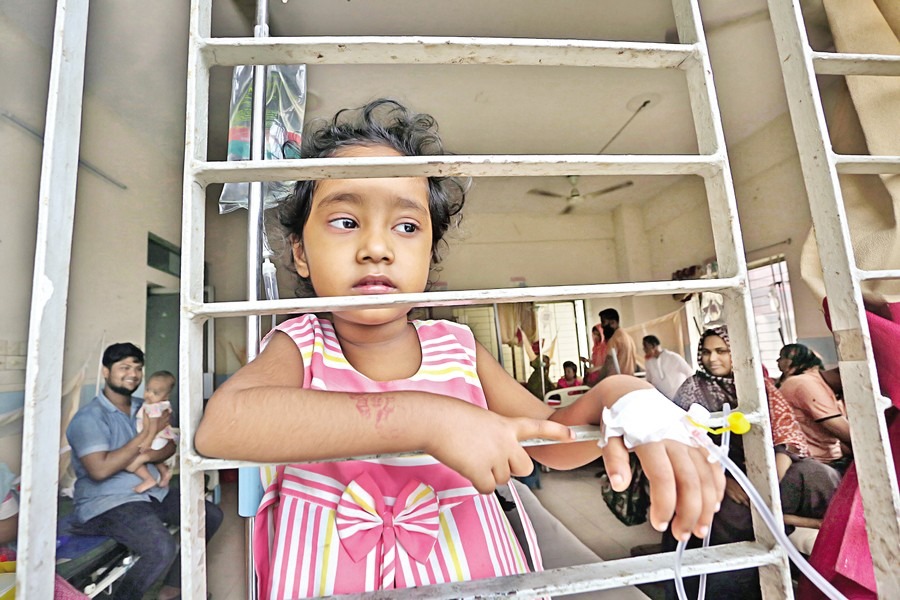
Published :
Updated :

Bangladesh is experiencing the worst nationwide outbreak of dengue in its history with for every five deaths; one is a child, according to a new report of UNICEF.
The endemic situation already has a significant impact on the public health system in the country, it said the report on Tuesday.
As of 4 September this year, 133,134 dengue cases (including 38 per cent women and 19 per cent children (0-15 yrs) have been infected, with 646 deaths (58 per cent female, 12 per cent children below 15 years old).
“Even worse, one in every five people infected is a child, and children under five are at greater risk of severe illness (6 per cent so far infected), for every five deaths, one is a child,” said UNICEF in its second report on dengue.
Sporadic outbreaks have been occurring in Bangladesh since 1964. There was a major epidemic dengue outbreak in 2000 and since then, there have been varying intensities of dengue every year in Bangladesh, according to the report.
In 2019, Bangladesh experienced a major dengue epidemic, with 101,354 dengue cases recorded and 164 dengue-related deaths.
However, since the beginning of this year, the number of cases has increased significantly, exceeding cases over the same period of time in the previous years and the number of deaths is the highest ever recorded.
This number represents only the diagnosed cases from different government hospitals and some selected private hospitals. Most of the cases who don’t come to hospital and take remedies or take consultations from private practitioners are much higher, said UNICEF.
nsrafsanju@gmail.com


 For all latest news, follow The Financial Express Google News channel.
For all latest news, follow The Financial Express Google News channel.